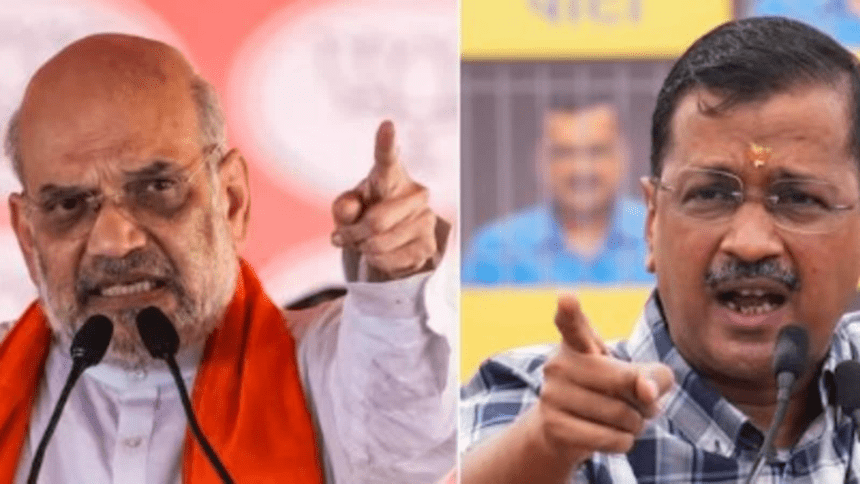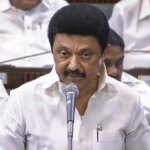The Growing Political Battle Ahead of the Delhi Elections 2025
As the 2025 Delhi elections approach, the political landscape is heating up with a fierce battle between the Aam Aadmi Party (AAP) and the Bharatiya Janata Party (BJP). The ongoing war of words, characterized by accusations, rebuttals, and intense public engagement, sets the stage for a captivating electoral contest. With key figures—Arvind Kejriwal, National Convenor of AAP and former Chief Minister of Delhi, and Amit Shah, Union Home Minister and senior BJP leader—at the forefront, the election discourse has become a focal point of political strategies and public sentiment.
The Central Charge: Accusations and Counter-Claims
Kejriwal recently intensified the debate by claiming that the BJP plans to project Ramesh Bidhuri as its Chief Ministerial face for Delhi. Stating this based on "credible sources," Kejriwal’s assertion has attracted sharp rebuttals from BJP leaders. Amit Shah, speaking at a rally, dismissed Kejriwal’s comments, emphasizing that the BJP’s political nominations were not dictated by AAP’s statements. "Can Kejriwal decide the BJP’s chief ministerial face? The people of Delhi are well aware of these manipulation tactics," he remarked.
The tone of the political discourse shifted when Shah accused Kejriwal of neglecting the plight of Delhi’s slum dwellers. During an outreach program, he highlighted deteriorating living conditions, claiming that residents lacked access to clean water and were living in distressing circumstances. This criticism of Kejriwal is part of a broader narrative the BJP has cultivated, which includes allegations of luxurious lifestyles and corruption within the AAP’s governance.
Kejriwal’s Response: Strategies and Promises
In response to Shah’s scathing remarks, Kejriwal took to the microblogging site X (formerly Twitter) to announce his plans for a press conference aimed at addressing these claims. He vowed to unveil the "dirty intentions of the BJP," particularly regarding their stance towards slum areas, which the BJP allegedly targets for demolition post-elections. His defense strategy hinges on framing the AAP as a party dedicated to the welfare of Delhi’s vulnerable populations, in stark contrast to the BJP’s portrayal of AAP’s governance as elitist and detached.
During his statements, Kejriwal expressed outrage at Shah’s characterizations, indicating that such accusations would be answered by the electorate in the upcoming elections. The AAP leader positioned himself as the champion of underprivileged communities, pledging to advocate for their rights and address their concerns directly.
The "Sheesh Mahal" Controversy: A Symbol of Criticism
The BJP’s rhetoric includes references to the "Sheesh Mahal," a term coined to describe the Chief Minister’s official residence, which critics say underwent expensive renovations during Kejriwal’s tenure. BJP leaders use this moniker to argue that Kejriwal is out of touch with the realities of Delhi’s poorer populations, further fueling their critique of AAP’s governance. This strategy aims to underscore a perceived discrepancy between the lifestyle of the political elite and the struggles of common citizens, particularly those living in slums.
The Stakes Ahead: Voter Sentiment and Political Strategies
As the Delhi elections draw near, the stakes are high for both the AAP and the BJP. Poll narratives will likely revolve around issues such as governance, urban development, slum rehabilitation, and corruption. Each party must not only articulate clear policies but also connect emotionally with the electorate to galvanize support. Public dialogues on social media, community outreach, and campaign rallies will be pivotal in swaying voter sentiment.
Conclusion: A Political Landscape in Flux
The Delhi elections of 2025 are shaping up to be a robust battleground for political ideologies, governance philosophies, and promises to the electorate. As Kejriwal positions AAP as the guardian of the marginalized and Shah embodies the BJP’s critique of AAP’s past governance, the ultimate impact will depend on political strategies, public engagement, and, most importantly, how these narratives resonate with the voters of Delhi. As both parties prepare for a prolonged and contentious campaign, the outcome will certainly reflect the pulse of the city’s inhabitants as they voice their aspirations and concerns for the future.








